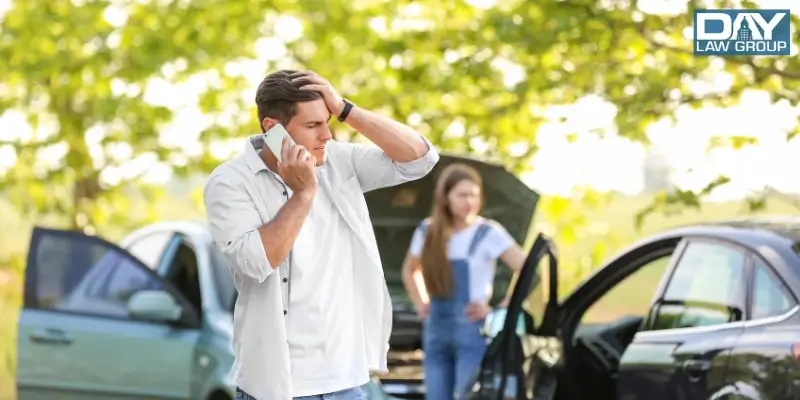Louisiana Car Accident Laws 2025 Explained

Every car accident leaves behind challenges, which can be physical, emotional, and financial. Learning more about Louisiana car accident laws can help you reclaim stability and begin the road to recovery. Consider working with a personal injury attorney to resolve disputes and seek compensation after an accident.
Fault and Comparative Negligence
Louisiana follows a fault-based system in which the responsible party covers damages. Evidence like police reports and witness statements plays an important role in determining fault. The state’s comparative negligence rule grants injured parties the opportunity to recover damages, even if they contributed to the accident. For example, if a driver is 30% at fault, their car accident compensation will be reduced by 30%.
This system promotes fairness but also shows the importance of strong evidence to reduce the amount of fault assigned to you. Drivers involved in accidents must document the scene thoroughly to support their case. Consulting a legal professional can also clarify the potential impact of comparative negligence on compensation.
Filing Deadlines
Louisiana has a statute of limitations for car accidents. This is a time limit on how long you have to file a claim. The short timeframe queries prompt action to preserve your right to compensation. Filing after the deadline generally results in the claim being dismissed, regardless of its merit.
Some exceptions might extend the filing period, like cases involving minors or delayed injury symptoms. These exceptions are limited, though, so it’s important to work with an attorney early to meet deadlines and increase your chances of success.
Insurance Requirements
Louisiana requires drivers to carry minimum liability insurance to cover damages they may cause during an accident. This includes coverage for bodily injury and property damage. Many drivers also opt for uninsured/underinsured motorist coverage that protects them if the at-fault driver does not have enough insurance to cover damages.
While collision and comprehensive coverage are not required, these types of insurance can provide additional protection. Drivers should understand their policy limits and optional types of coverage. Regularly review your insurance policies to verify you have enough coverage in the case of an accident.
The Role of Police Reports
Police reports play a significant role in car accident claims. These reports document important details like the accident’s location, involved parties, and observations from the officers. Louisiana requires police reports for accidents involving injury or serious property damage.
Obtaining a copy of the police report is beneficial for building a claim. Insurance companies and attorneys often use these reports to establish fault. If any information in the report is incorrect, drivers should work with law enforcement to request corrections. A good report strengthens a case and simplifies the claims process.
Damages and Compensation
There are different types of damages people can attempt to receive after an accident, including:
- Economic damages. These include tangible losses like medical bills, property repair costs, and lost wages. Victims should save all receipts and bills to substantiate their claims. Additionally, pay stubs or employer statements might be necessary to show lost income due to injuries.
- Non-economic damages. This category can include compensation for emotional distress, pain, and suffering. While harder to quantify, these damages reflect the accident’s broader impact. Courts evaluate the severity of injuries and their lasting effects on the victim’s enjoyment of life. These damages might require professional testimony or detailed personal accounts to prove.
- Punitive damages. If someone’s negligent behavior caused the accident, courts may require the at-fault party to pay punitive damages. These are rare, but they are often large amounts of money that can make a significant difference. These can happen in situations involving driving under the influence or a blatant disregard for safety.
- Settlement vs. trial. Many cases are resolved through settlements, but going to trial remains an option for victims seeking fair compensation. Each choice has its advantages and disadvantages, depending on the case. Pursuing a trial might lead to higher compensation in some circumstances.
Every car accident claim results in a different amount of damages due to the circumstances of the accident. Working with an attorney can help increase the amount of damages you might be entitled to.
FAQs
Is Louisiana a Fault State for Car Accidents?
Louisiana is a fault state for car accidents. This means the driver responsible for the accident must compensate others for damages. Fault is determined based on evidence like police reports, witness statements, and an analysis of the accident scene. Louisiana’s comparative negligence rule grants victims the opportunity to file for damages despite their contributions to the accident; however, their compensation is lowered by the percentage they are found to have contributed fault.
What Happens if You Don’t Report an Accident Within 24 Hours in Louisiana?
If you don’t report an accident within 24 hours in Louisiana, it can result in fines, penalties, and complications with insurance claims. Louisiana requires drivers to report accidents involving injury, death, or property damage to the police as soon as possible after an accident occurs. If an accident goes unreported, it can affect your ability to receive compensation and result in unnecessary legal issues.
What to Do After a Car Accident in Louisiana?
After a car accident in Louisiana, drivers should check for injuries and call emergency services if needed. Move vehicles to a safe location if possible. Exchange information with other involved parties, including names, contact details, and insurance information. Document the scene with photos and gather witness contact details. Finally, report the incident to the police and your insurance provider to stay compliant with state laws.
Can an Injured Passenger File a Claim Against the Driver in a Car Accident?
An injured passenger can file a claim against the driver in a car accident. They have the right to seek compensation from any party that is at fault for the accident, including the driver of the vehicle they were in. Passengers can file a claim against the driver’s insurance to recover medical expenses, lost wages, and other damages. If multiple parties share fault, the passenger might file a claim against other responsible individuals.
Secure What You’re Owed
Recovering after an accident takes time, but using Louisiana law effectively can help support your path to justice and healing. If you’re feeling overwhelmed after a car accident, let us help you take the next step. Schedule a consultation with Day Law Group today for guidance.
Contact Us
Day Law Group Office Location
Contact Us
Choose Day Law Group
Fields marked with an * are required
"*" indicates required fields



